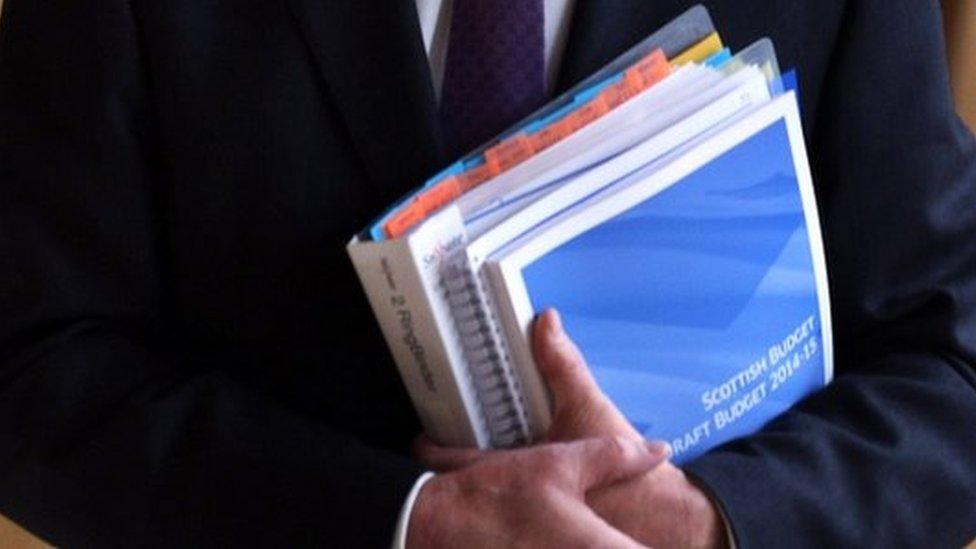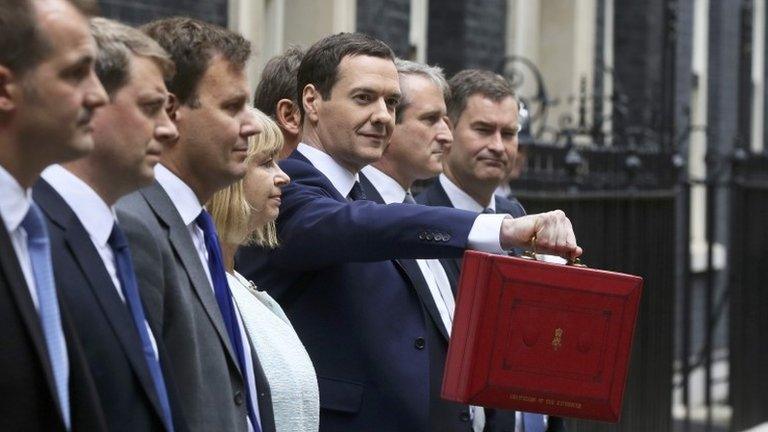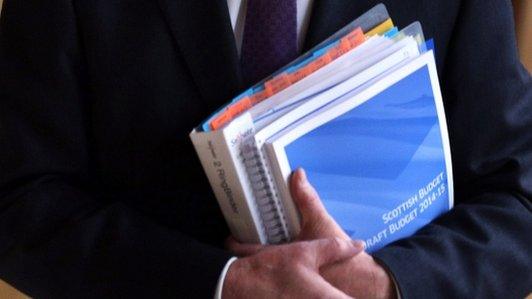Plans for Scottish government budget delayed
- Published

The draft budget is usually published in September
Details of Scottish public spending plans for next year are to be delayed by several months.
The Scottish government normally publishes its draft budget in September.
But the finance department said the 2016-17 proposals will not be produced until after the UK government's spending review in late November.
That means it could be early January before Finance Secretary John Swinney makes a statement to Parliament.
There would then need to be a process of fast-track legislation for the budget bill to become law.
The delays will give Scotland's councils less time to prepare their budgets for next year, which are normally agreed in February.
Health spending
A spokesman for the local government body Cosla accepted that it was "highly unlikely" it would receive news of its allocation in the normal timescale.
"We anticipate figures in late December or early January based on timescales for previous spending reviews, which in terms of financial planning and decision making is not the ideal situation," he said.
The Scottish government is anticipating a reduction in the block grant available to fund devolved services like health, education, local government, and law and order.
It has already promised to protect health spending which could force ministers to make deeper cuts in other areas.
Cuts plan
A Scottish government spokesman said: "The later than expected 2015 UK Spending Review publication means that we will not know what block grant will be available to Scottish ministers until November 2015, although it is clear that we face significant further austerity over the coming years.
"Scottish ministers will publish their forward spending plans following the outcome of the UK Spending Review."
The Scottish government's allocation will depend on the choices the Chancellor, George Osborne, makes in his three-year spending review on 25 November.
The Chancellor wants to save another £20bn a year and has warned unprotected departments to plan for cuts of between 25% and 40%.
In a statement, the Treasury said: "Our long term plan has created the conditions under which Scotland as part of the UK is thriving, and all parts of the UK now need to play their part in helping to eliminate the deficit, run a surplus and ensure Britain lives within its means.
"The Spending Review, which will be set out on 25 November, is the next step in this plan."
The statement added that if the Scottish government wished to raise additional revenue, it would have "much greater scope than ever before to do so".
Mr Swinney has yet to decide whether or not he will publish his own three-year spending review before the Holyrood elections in May 2016.
Additional powers
He will, however, have to set a new Scottish rate of income tax as part of the budget process.
From 6 April, Holyrood will become responsible for setting a portion of income tax under a transfer of power recommended by the Calman commission.
Further tax and some welfare powers are to be devolved to Holyrood under the Smith agreement on extending devolution that followed the independence referendum.
First Minister Nicola Sturgeon is expected to indicate how she intends to use some of these additional powers when she announces her programme for government on 1 September.
The Scottish Labour public services spokeswoman, Jackie Bailie, said the delay would leave those who provided "crucial" services like schools and hospitals "in the dark" and unable to plan budgets.
She said: "The SNP always complain they can't take action because they don't have the power, yet here they are delaying making decisions with the new financial powers they have. This will be the first time the SNP can set a Scottish rate of income tax.
"An attempt to rush the budget though Holyrood means it won't get the level of scrutiny it needs, what does the SNP government have to hide?"
- Published21 July 2015

- Published17 January 2014
